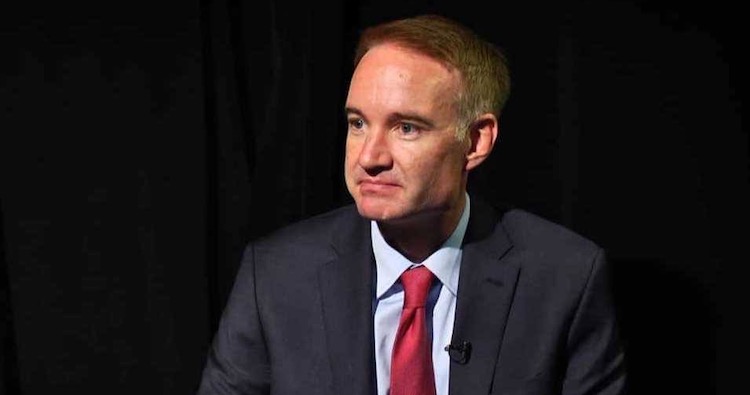US ambassador to OSCE: Russia’s unwanted military presence in Georgia, Moldova contradict fundamental principles

“We are engaged in a discussion within the framework of the U.S.-Russia bilateral Strategic Stability Dialogue. We re-engaged yesterday in the NATO-Russia Council. And we are ready to begin engaging here at the OSCE,” Ambassador Carpenter stated today. Photo: 1tv.ge.
US Ambassador to OSCE Michael Carpenter stated today at the OSCE Permanent Council meeting in Vienna that ‘Russia’s unwanted military presence on the territory of Georgia and Moldova continues to contradict fundamental principles.’
He noted that the US is ‘committed to expressing frank concerns about Russia’s actions, notably its threats against Ukraine.’
The bottom line is this: we need a serious discussion about what we can do to reduce insecurity and build trust, and we are ready to get down to work,” Ambassador Carpenter said.
The OSCE Permanent Council is the third international political meeting this week to discuss the issues of Ukrainian and European security in the light of Russia’s amassing of forces on the border with eastern Ukraine.
NATO Secretary-General Jens Stoltenberg called on Russia to withdraw its forces from Georgia, Ukraine and Moldova, noting that Russian military forces in these countries are 'uninvited and not welcomed' after the NATO-Russia Council meeting in Brussels yesterday.
We are engaged in a discussion within the framework of the U.S.-Russia bilateral Strategic Stability Dialogue. We re-engaged yesterday in the NATO-Russia Council. And we are ready to begin engaging here at the OSCE,” Ambassador Carpenter stated today.
Following the Russia-US Strategic Stability Dialogue which took place on January 10, US Deputy Secretary of State Wendy Sherman stated that the US ‘will not allow anyone to slam closed NATO's open door policy,’ while Russian Deputy Foreign Minister Sergey Ryabkov said that ‘Russia needs concrete guarantees that Ukraine and Georgia will never become NATO members.’
 Tweet
Tweet  Share
Share